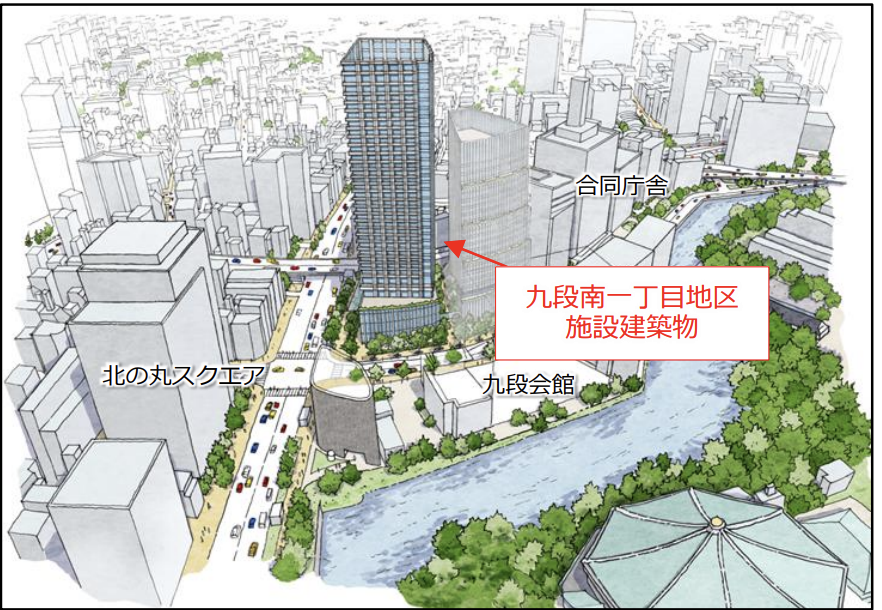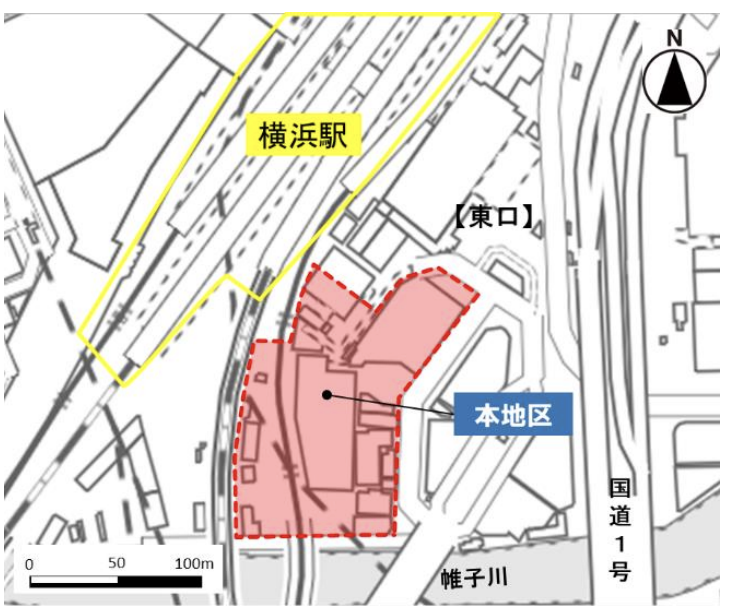For residents of rental housing, the sudden sounding of a fire alarm in the middle of the night is one of the most surprising and confusing events. Especially in the case of an alarm sounding due to a dead battery, questions may arise such as "Who should take care of this?" and "Is the cost to be borne by the landlord or by the tenants?
Residential fire alarms became mandatory in all residences nationwide in 2006 with the revision of the Fire Defense Law. This amendment made the installation of fire alarms mandatory for rental housing as well, making them important safety equipment for both owners and tenants. However, the entities that are obligated to install them and the division of responsibility for their maintenance and management are not always clearly understood.
In this article, based on INA&Associates' many years of experience in the management of rental housing, we provide a comprehensive explanation of the issue of dead batteries in fire alarms in rental housing, from the legal basis to how to deal with the issue in practice. We will clarify the responsibilities of the owner, the management company, and the tenants from their respective perspectives, and provide practical knowledge to prevent problems before they occur.
Obligation to Install Fire Alarms and Legal Basis
Background of Installation Obligation under the Fire Service Law
The obligation to install residential fire alarms is clearly stipulated in Article 9-2 of the Fire Service Act and Article 5-6, etc. of the Fire Service Act Enforcement Order. The revision of this law was prompted by the serious social problem of the increasing number of deaths caused by house fires. In particular, the number of deaths from fires occurring while people were sleeping was high, and the importance of early detection and evacuation became strongly recognized.
In 2004, the Fire Service Law was revised, making it mandatory to install fire extinguishers in stages. First, installation became mandatory for newly built houses on June 1, 2006, and then, on April 1, 2011, installation became mandatory for all houses nationwide, including existing houses. As a result of this amendment, all residences, whether detached houses, apartment buildings, or rental houses, are required to have fire alarms.
Obligation of Installation in Rental Housing
The obligation to install fire alarms in rental housing is a point of confusion for many. Taking the Tokyo Metropolitan Fire Prevention Ordinance as an example, it stipulates that "persons concerned with the residence" must install and maintain residential fire alarms.
The phrase "persons concerned" is important, and specifically refers to the following three parties
The owner of the residence (owner), in his/her position of ownership of the property, is responsible for ensuring the safety of the building. In the case of rental housing, the owner has a duty to provide a safe living environment for the tenants, and as part of this duty, is responsible for installing a fire alarm system.
The manager (management company/real estate agency) is responsible for the day-to-day maintenance of the property, as it is entrusted by the owner to manage the property. The management company is often responsible for practical matters such as checking the operation of the fire alarms and managing when they need to be replaced.
The occupant (resident), as the actual user of the residence, is responsible for the proper use and basic maintenance of the fire alarm system. This includes routine inspections and initial response to dead batteries.
Thus, it is unique in that all three parties are legally obligated to install and maintain them. This is considered to be the purpose of ensuring more reliable safety against the serious life-threatening risk of fire by having all parties involved share responsibility.
Installation Location and Technical Standards
The installation location of residential fire alarms is also clearly defined in the Fire Service Law. The basic installation location is at the top of the stairs of the bedroom and the floor where the bedroom is located (except for the stairs on the first floor). This regulation is based on statistical data showing that many people are killed by fire while sleeping.
Other locations may be required depending on the number of floors and structure of the house. In addition, according to municipal fire prevention ordinances, installation in kitchens and other living rooms may be required in some areas, so it is important to check the local ordinances of the property location.
As for technical standards, residential fire alarms must be nationally certified products, and as of April 1, 2014, it is mandatory to "indicate that the product has passed the certification test". Previously, "NS Mark" products were also allowed to be sold until March 31, 2019, but the transition to certified products has now been completed.
| Installation | Installation Obligation | Remarks |
|---|---|---|
| Bedroom | Required | Installed in all bedrooms |
| At the top of the stairs on the floor where the bedroom is located | Required | Excluding stairs on the first floor |
| Kitchen | Depends on ordinance | May be required by municipal ordinance |
| Other rooms | Depends on municipal ordinance | May be stipulated by municipal ordinance |
Principle of sharing expenses when batteries run out
Current status of responsibility sharing in practice
Although all three parties are legally obligated to install and maintain the batteries, in practice, the management company or the owner generally bears the installation costs. This is due to circumstances unique to rental housing.
Lease contracts are usually renewed every two years, and the replacement of residential fire alarms is usually scheduled for 10 years. It is not practical to operate the system where the resident bears the cost of installation and brings it with them when they move out. In addition, fire alarms are equipment to be fixed and installed in the building, and it is reasonable to treat them as building equipment in the same way as air conditioners and lighting fixtures.
Furthermore, owners have a duty of care for the safety of their tenants. This duty is an important obligation attached to the lease contract, and the installation and maintenance of fire alarms is positioned as part of this duty. If a fire should break out and cause extensive damage due to an inadequate fire alarm, the owner may be held liable for damages, so proper maintenance is important from a preventive perspective.
Distinction between battery replacement and main unit replacement
Maintenance of fire alarms can be broadly divided into battery replacement and main unit replacement. The following is an overview of the division of responsibility between these two from a practical perspective.
In many cases, the resident tends to be responsible for battery replacement. The timing of a dead battery depends on usage conditions, and the resident is usually the first to notice when the alarm sounds. Since batteries are relatively inexpensive, costing around 1,000 yen, and can be easily replaced, many agreements are in place where the resident bears the burden of replacing the batteries.
However, elderly households or tenants with physical limitations may have difficulty replacing the batteries in ceiling-mounted fire alarms. In such cases, the management company or owner can often handle the task.
In general, the owner or management company will pay for the replacement of the main unit. The price of the main unit is more expensive than batteries, ranging from several thousand yen to 10,000 yen, and it is reasonable to treat it as building equipment since it is supposed to be used for a long period of time, as long as 10 years.
Importance of Clarification in Contracts
It is important to clearly define the division of responsibility for the maintenance and management of fire alarms in the lease agreement and the explanation of important matters. Ambiguous statements or oral agreements may cause problems at a later date.
The following items should be included in the contract
The following items should be included in the contract: who is responsible for installing the fire alarm, who is responsible for and bears the cost of replacing batteries, who is responsible for and bears the cost of replacing the main unit, how inspections and operational checks will be conducted, and who to contact and what procedures to follow in the event of a malfunction.
It is especially important to provide residents with the appropriate knowledge regarding the initial response to a dead battery alarm sounding. Many residents often panic when the alarm sounds late at night, unable to distinguish between a fire and a dead battery.
| Item | General Responsibility | Cost sharing | Remarks |
|---|---|---|---|
| Initial installation | Owner/management company | Owner/management company | Installed as building equipment |
| Battery replacement | Tenant | Tenants | Important to clarify in the contract |
| Main unit replacement (10 years) | Owner/management company | Owner/management company | Renewal of building equipment |
| Daily inspection | Residents | -Recommended | Twice a year operation check recommended |
| Response in case of breakdown | Management Company | Owner/management company | Prompt response required |
Differences by Region and Points to Note
Regulations regarding the installation and maintenance of fire alarms are basically based on the Fire Defense Law, but some details may be stipulated by municipal fire prevention ordinances. Therefore, it is important to check the ordinance of the property location and understand if there are any requirements specific to the area.
For example, some municipalities require installation in the kitchen, while others may have more detailed regulations regarding the location. Penalties may also vary from municipality to municipality, so care should be taken.
Furthermore, management companies and owners are responsible for explaining to tenants the importance of fire alarms and their proper use. This is both a legal obligation and an important effort to ensure the safety of tenants.
Actual response procedures and how to avoid problems
Appropriate response to a dead battery alarm sound
When an alarm sounds from a fire alarm, it is important to first calmly assess the situation. Many residential fire alarms are equipped with a unique alarm sound and announcement just before the batteries run out.
The distinction between a fire and a dead battery can be determined by the type of alarm sound. If a fire is detected, a continuous, loud alarm will sound continuously, whereas a dead battery will usually result in an intermittent sound and an audible announcement such as "batteries are dead. Also, if there is no smoke or burning smell, the battery is most likely dead.
If you determine that the batteries are dead, the procedure to take is as follows.
First, stop the alarm sound. There is a stop button or string attached to the main unit, so operate it to stop the sound. Depending on the model, you may need to press and hold the button. Even if the sound is temporarily stopped, it is designed to sound again after a while, so it is necessary to replace the batteries for a fundamental solution.
Next, contact the management company or owner. Even if it is late at night or early in the morning, it is important to contact the emergency contact. Many management companies have a 24-hour emergency contact number.
Specific procedures for battery replacement
The following is an explanation of the procedure for residents to replace batteries, with an emphasis on safety.
In advance, prepare a stepladder or stepladder to ensure a safe working environment. Since the work will be performed at a high elevation, make sure that the footing is stable enough. It is also important to purchase replacement lithium batteries in advance.
In the removal procedure, first remove the main body of the fire alarm from the ceiling or wall. For most models, the main unit can be removed by turning it counterclockwise while pressing down on it, but this varies by model, so check the indication on the main unit or the instruction manual.
When replacing the battery, pull out the old lithium battery from the battery connector inside the main unit and connect a new battery. Be careful not to connect the connector in the wrong direction.
To check operation, after installing the main unit in its original position, press the test button to confirm that it operates normally. If the alarm sounds normally, the replacement is complete.
Response system on the part of the management company/owner
It is important for management companies and owners to have an appropriate response system for fire alarms.
As part of the implementation of periodic inspections, periodic inspections should be conducted about twice a year to check the operational status. The Fire and Disaster Management Agency recommends inspections during the fire prevention campaign periods in spring and fall. At this time, the remaining battery level and the installation status of the main unit should also be checked.
To manage the replacement period, the date of installation of the fire alarm should be recorded, and a replacement plan for the main unit should be established for a period of 10 years. Planned replacement will prevent unexpected failures.
Explanations to tenants, such as how to use the fire alarm, what to do when the batteries run out, and emergency contact information, will be provided at the time of occupancy. Written explanatory materials are provided for reference at a later date.
For the emergency response system, a 24-hour contact number will be provided to ensure a prompt response. It is especially important to establish procedures in advance for late-night and holiday responses.
Trouble Cases and Preventive Measures
The following are examples of problems that are likely to occur in actual rental housing management and preventive measures.
Late-night alarm sounding troubles are one of the most common cases. In this case, a dead battery alarm sounds in the middle of the night, causing panic among tenants. As preventive measures, it is effective to check the battery level regularly and explain the situation to the residents in advance.
There are cases in which unclear division of responsibilities can lead to trouble over battery replacement and repair costs. This can be prevented by clearly stating this in the contract and by providing sufficient explanation at the time of moving in.
One of the difficulties in dealing with elderly households is that elderly tenants are sometimes unable to replace batteries. This can be handled by the management company through substitute services and periodic on-site inspections.
In the case of confusion between equipment failure and dead batteries, there are cases where the failure of the main unit is mistakenly identified as a dead battery and inappropriate measures are taken. Proper diagnosis and prompt response by the management company are important.
| Trouble Cases | Frequency of occurrence | Main causes | Preventive measures |
|---|---|---|---|
| Alarm sounding late at night | High | Battery dead | Periodic inspection and prior explanation |
| Conflict over division of responsibility | Medium | Contract unclear | Clear contract |
| Difficulty in dealing with the elderly | Medium | Physical limitations | Substitute service |
| Malfunction misidentification | Low | Lack of knowledge | Proper diagnosis |
Relationship with Insurance
The installation and maintenance of fire alarms is also important in relation to fire insurance. If a fire alarm is not properly installed and maintained, it may affect fire insurance payments.
Some insurance companies may consider the installation of fire alarms as a factor in calculating premiums. In addition, if the fire alarm is not functioning properly at the time of a fire, it may affect the insurance payment.
Therefore, it is important for owners to check their fire insurance policies and confirm with the insurance company in advance the installation and maintenance requirements for fire alarms.
Conclusion
Organization of Important Points
We have explained in detail the issue of dead batteries in fire alarms in rental housing, from the legal basis to practical responses. Here, we would like to summarize some important points.
Regarding legal obligations, the Fire Defense Law requires the installation of residential fire alarms, and in rental housing, all three parties, the owner (owner), the manager (management company), and the occupant (tenant), are obligated to install and maintain them.
In practice, the owner/management company is generally responsible for the initial installation and replacement of the main unit (every 10 years), while the tenant is responsible for battery replacement. However, it is important to clearly state this in the contract.
As an appropriate response procedure, when a dead battery alarm sounds, first confirm that it is not a fire, stop the alarm sound, and then contact the management company or owner.
In terms of trouble prevention measures, it is important to conduct periodic inspections, clearly state the division of responsibilities in the contract, provide appropriate explanations to tenants, and establish an emergency response system.
Recommendations for Owners and Management Companies
Owners of rental housing and management companies in charge of property management should understand that proper management of fire alarms is directly linked to ensuring the safety of tenants and avoiding legal risks.
As for the importance of preventive management, regular inspections and planned replacement can prevent sudden problems. This is an important initiative that will also improve resident satisfaction.
Clear division of responsibilities can prevent problems at a later date by stating this in the contract and providing sufficient explanation at the time of occupancy.
Establishing an emergency response system will provide tenants with a sense of security and add value to the property.
Recommendations for Residents
We ask that tenants living in rental housing understand that fire alarms are important life-saving equipment and cooperate in their proper use and basic maintenance.
As a daily precaution, please check the operation of the fire alarm about twice a year, and if you notice anything out of the ordinary, please contact the management company as soon as possible.
When dealing with a dead battery, please do not panic and follow the appropriate procedures, and receive support from the management company if necessary.
Please confirm the details of the contract to understand the division of responsibilities in advance, and confirm any questions at the time of signing.
Future Prospects
Technology for residential fire alarms is advancing daily, with new technologies being introduced, such as longer-lasting batteries and monitoring systems linked to smartphones. These technological innovations are expected to significantly reduce the number of problems caused by dead batteries in the future.
In addition, with the development of IoT technology, systems that monitor the status of fire alarms in real time and detect dead batteries and malfunctions in advance are also being put to practical use. The introduction of such systems will enable more efficient and reliable maintenance and management.
At INA&Associates, we strive to keep abreast of the latest technological trends in order to better serve our customers. Please feel free to contact us if you have any questions or concerns about fire alarm systems.
Next Action
After reading this article, we recommend the following actions
Owners and management companies should inspect the installation status and maintenance system of fire alarms in the properties they currently manage, and make improvements as necessary. We also recommend that you review the contents of the contract and clarify the division of responsibilities.
Residents should check the operation of the fire alarm system in their properties and reconfirm the contents of the contract. If anything is unclear, we recommend that you contact the management company.
If you are considering renting a house, we recommend that you add the installation and management of fire alarms to your list of items to check when selecting a property.
Fire alarms are important equipment to protect your life and property. We hope that proper installation and maintenance will help you realize a safe and secure living environment.
Frequently Asked Questions
Q1. If the batteries in a fire alarm go dead in a rental unit, who pays the cost?
A1. The cost of replacing the batteries is determined by the contents of the lease agreement. Generally, the resident is responsible for the cost, but if it is not specified in the contract, please check with the management company or owner. Batteries are relatively inexpensive, costing around 1,000 yen. If the replacement work is difficult, such as in elderly households, the management company may take over the work. The important thing is to clarify the division of responsibility at the time of contract.
Q2: Who is responsible for replacing the fire alarm (every 10 years)?
A2. Generally, the owner or the management company is responsible for the replacement of the main unit. Residential fire alarms are fixed to the building and are treated as building equipment since they are supposed to be used for a long period of time (10 years). In addition, owners have a duty of care for the safety of their tenants, and as part of this duty, they are considered responsible for replacing the main unit. The price of the main unit ranges from several thousand yen to 10,000 yen.
Q3. The fire alarm went off late at night. How can I distinguish between a fire and a dead battery?
A3. The distinction between fire and dead battery can be determined by the type of alarm sound. If a fire is detected, a continuous and loud alarm will sound continuously, but if the battery is dead, an intermittent sound or a voice announcement such as "The battery is dead" will generally be made. Also, if there is no smoke or burning smell, the battery is most likely dead. However, if you are at a loss to judge, consider evacuation first and then contact the management company, with safety as the top priority.
Q4. What are the risks if a fire alarm is not installed?
A4. If a fire alarm is not installed, there are several serious risks. Legally, it is a violation of the Fire Service Act, and you may be subject to penalties. In addition, early detection of a fire may be delayed, leading to serious life-threatening damage. Owners may be held liable for damages or professional negligence resulting in death or injury as a violation of their duty of care for safety in the event of a fire. In addition, this may affect the payment of fire insurance.
Q5. How often should fire alarms in rental housing be inspected?
A5. It is recommended that residential fire alarms be inspected twice a year. The Fire and Disaster Management Agency recommends inspections during the spring and fall fire prevention campaign periods, specifically around March and November are appropriate times. To inspect, press the test button on the main unit to confirm that a normal alarm sound is emitted. Also, check for dirt or dust on the main unit and any abnormalities in the installation conditions. If any abnormality is found, it is important to contact the management company or owner as soon as possible.

Daisuke Inazawa
Representative Director of INA&Associates Inc. Based in Osaka, Tokyo, and Kanagawa, he is engaged in real estate sales, leasing, and management. He provides services based on his extensive experience in the real estate industry. Based on the philosophy that “human resources are a company's most important asset,” he places great importance on human resource development. He continues to take on the challenge of creating sustainable corporate value.

.png)













